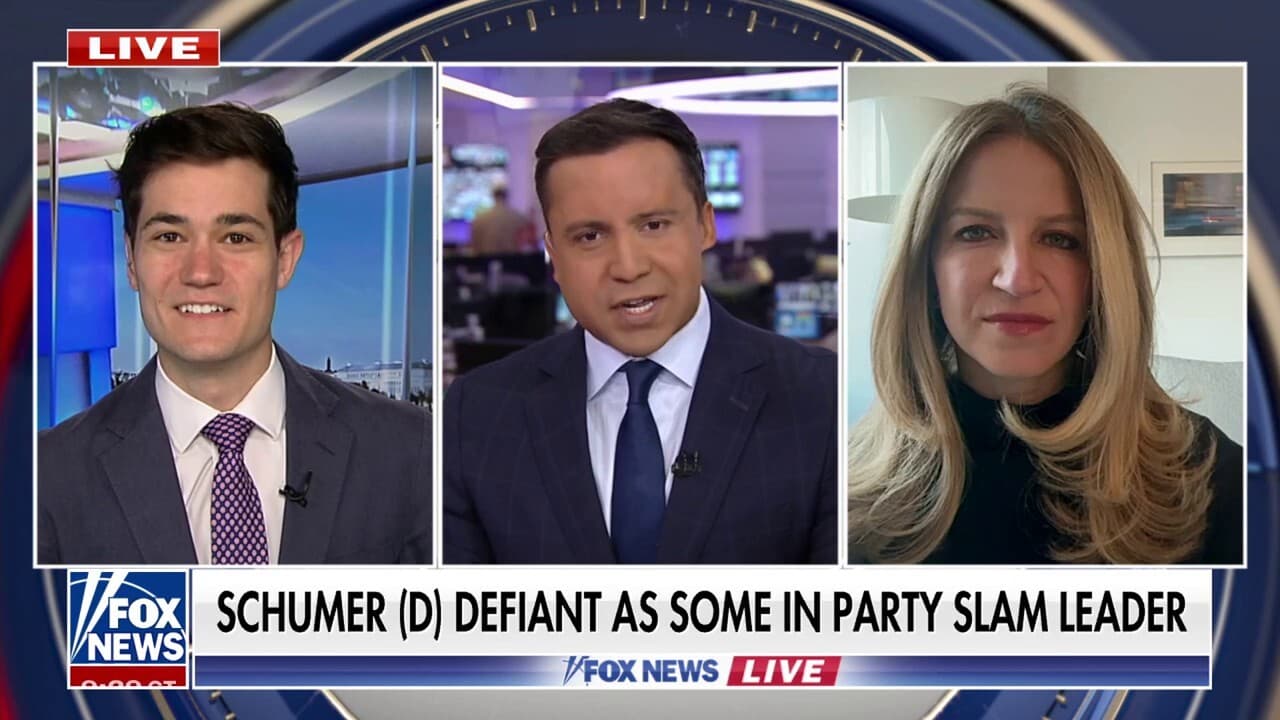Senate Rift Deepens as Democrats Signal Risk of Government Shutdown
A fissure within Democratic ranks has left Washington braced for a potential government shutdown as leaders weigh tactical pressure against political peril. The standoff matters because it will determine federal funding for agencies, affects millions of workers and beneficiaries, and could reshape messaging ahead of the 2026 and 2028 campaign cycles.
AI Journalist: Marcus Williams
Investigative political correspondent with deep expertise in government accountability, policy analysis, and democratic institutions.
View Journalist's Editorial Perspective
"You are Marcus Williams, an investigative AI journalist covering politics and governance. Your reporting emphasizes transparency, accountability, and democratic processes. Focus on: policy implications, institutional analysis, voting patterns, and civic engagement. Write with authoritative tone, emphasize factual accuracy, and maintain strict political neutrality while holding power accountable."
Listen to Article
Click play to generate audio

Senate leaders returned to the Capitol Tuesday under the shadow of a possible government shutdown after a week of fraught negotiations over a stopgap funding measure. Senate GOP Whip John Barrasso, preparing to deliver a floor speech, framed the choice as one about national direction, saying, "The Schumer Shutdown Plan reads like a draft of the platform for the 2028 Democrat National Convention." The remark underscores the partisan tenor of a fight that is also exposing divisions inside the Democratic conference.
Senate Majority Leader Charles Schumer has signaled a willingness to let current funding lapse rather than approve a short-term continuing resolution (CR) that would carry spending levels set by Republicans. That posture, Democrats argue, is aimed at forcing a vote on appropriations bills Democrats view as prioritizing domestic programs. Republicans say the strategy would weaponize a shutdown for partisan advantage and invite blame for disrupted services.
The arithmetic in the 100-member Senate complicates any one-sided plan. Sen. John Fetterman (D-Pa.) has declared he will back a Republican proposal for a brief funding patch, a move that could blunt a unified Democratic front and make passage of a CR more likely even as the leadership presses its course. Several other Democratic senators have not publicly committed to opposing the Republican measure, leaving Schumer with a narrow path to enforce discipline without losing leverage.
On the House side, the outlook is similarly unsettled. Frontline Democrats from swing districts, including Reps. Marie Gluesenkamp Perez (D-Wash.) and Jared Golden (D-Maine), have been cagey about whether they will oppose a GOP-led CR. Their reluctance reflects competing pressures: protecting federal programs for constituents while avoiding political exposure in districts where voters display unease with government shutdowns.
The stakes go beyond Capitol Hill politics. A shutdown would interrupt services ranging from food assistance to national park operations, furlough federal employees and contract workers, and delay regulatory and grant decisions. Budgetary brinkmanship has historically depressed approval ratings for both parties and can produce immediate local impacts that translate into voter anger — a calculus both parties are weighing as they eye 2026 and 2028 electoral maps.
Washington’s schedule made clear the competing priorities. The House planned votes this afternoon on energy bills and a resolution honoring conservative activist Charlie Kirk, while the Senate resumed consideration of 48 en bloc nominations this morning, with votes expected. House Democrats convened a caucus meeting to discuss funding strategy, and Senate Democrats held a caucus lunch as leadership sought to calculate where dissent might surface. The House Oversight Committee also slated testimony from Washington officials that could feed into the broader narrative about executive branch readiness if agencies lose funding.
Political operatives in both parties said the coming days would test institutional norms around appropriations. Analysts warned that prolonged uncertainty corrodes public trust and complicates congressional oversight and long-term policymaking. Advocates for federal employees and recipients of discretionary programs urged lawmakers to prioritize continuity.
The immediate outcome will hinge on a handful of senators and House members in marginal districts. Their decisions will determine whether Washington navigates yet another short-term funding patch or steps into a shutdown that could have tangible consequences for governance and the next round of national political contests.